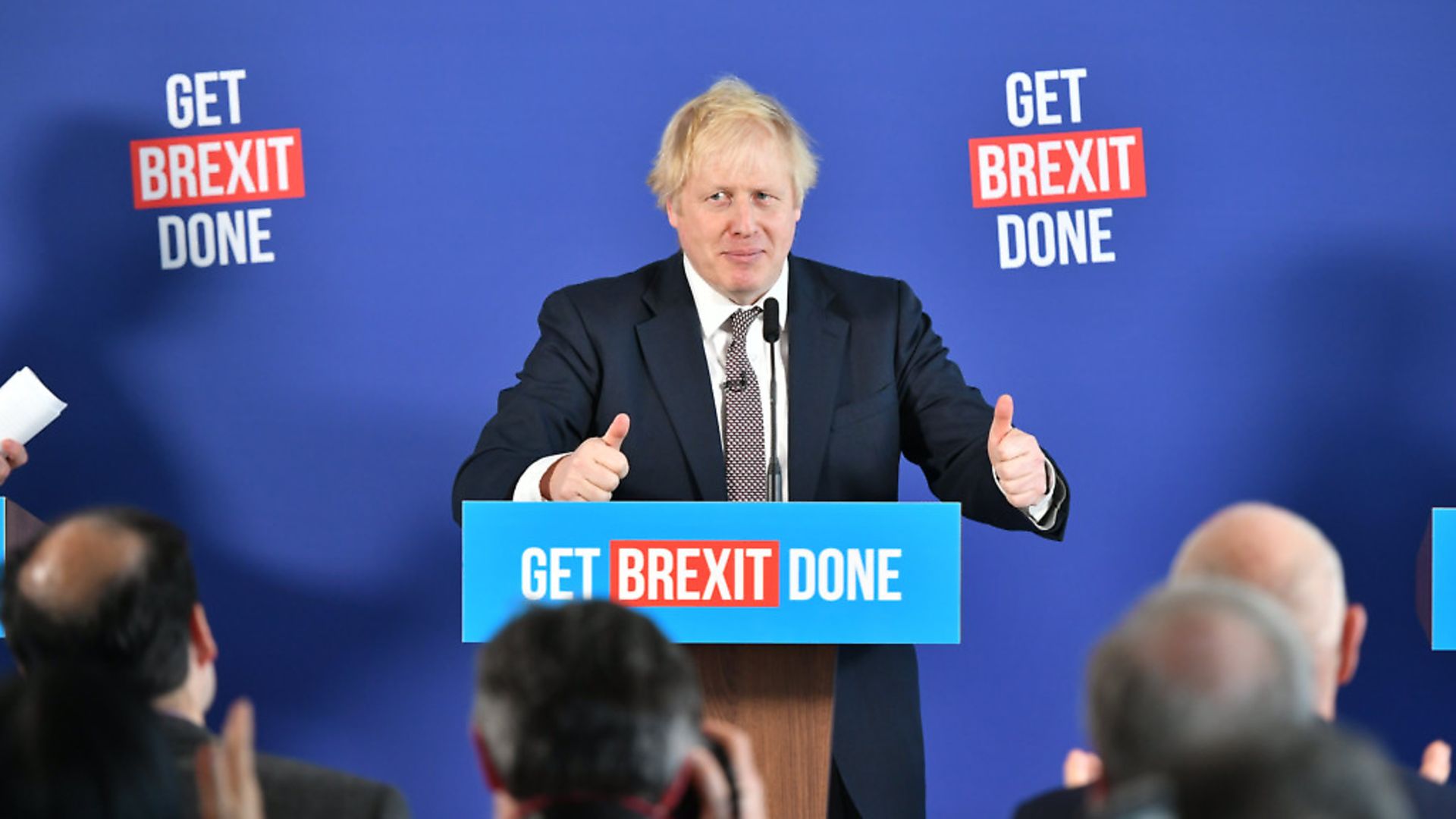
Low-income voters were behind Boris Johnson’s election landslide in 2019, a new report has found.
A study of voting behaviours during last year’s poll found that Johnson established a 15-point lead over his Labour rival among people on low incomes.
It also found that the Tories were more popular with minimum wage earners than they were among wealthier voters and that Labour trailled the Conservatives among poorer Britons for the first time.
But voting allegiances could be set to change again as lower earners suffer the brunt of the economic fallout from the coronavirus epidemic.
Research for the anti-poverty Joseph Rowntree Foundation think tank warned that low-income workers potentially face a ‘double injustice’ as they are less able to isolate themselves at home and are now most exposed to the worst economic effects of the Covid-19 crisis.
The report said: ‘The Conservatives are no longer the party of the rich, while Labour is no longer the party of the poor.
’The Labour Party that Sir Keir Starmer recently became leader of is today just as popular among the wealthy as it is among those on low incomes. Both parties have inverted their traditional support base.’
Research examined evidence from the British Election Study which found that in 2019, 45.4% of low-income voters backed the Tories, with 30.6% backing Labour. Among high-income voters the figures were 40% for the Tories and 30.8% for Labour.
They say Johnson’s promise to ‘level up’ the nation, combined with his support for Brexit, helped win over Labour voters.
Analysts Matthew Goodwin and Oliver Heath said Labour needed to ‘urgently revive’ its image especially given ‘tentative evidence that it is low-income voters who, unjustly, will be affected the hardest by the outbreak of Covid-19 and the accompanying economic crisis’.
Goodwin said: ‘Both parties need to work hard to appeal to this group, which is now badly affected by the coronavirus crisis.
’Low-income voters remain crucial and their votes are likely to remain volatile as the country moves out of the coronavirus crisis.’
Polling recently found that so-called ‘red wall’ voters also wanted to prioritise a trade deal with the EU, with 33.9% saying it was important, and 55% saying it was very important.
70% of those voters which flipped from Labour to the Tories said they wanted to see the UK continuing to prioritise working with the EU, compared to 20% who would rather see it work with the US.
Warning: Illegal string offset 'link_id' in /mnt/storage/stage/www/wp-includes/bookmark.php on line 357
Notice: Trying to get property 'link_id' of non-object in /mnt/storage/stage/www/wp-includes/bookmark.php on line 37






